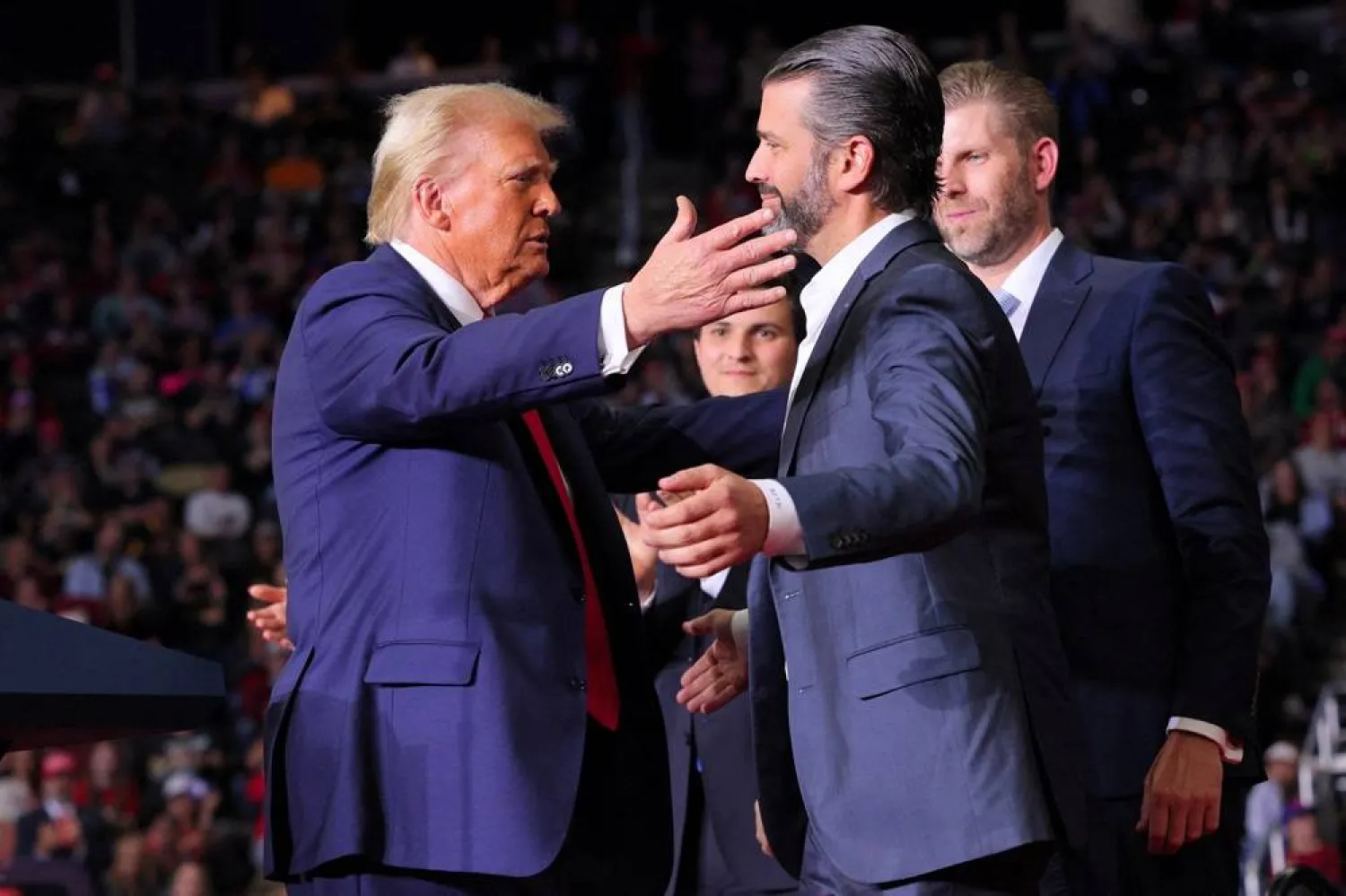Donald Trump Jr. has emerged as the most influential Trump family member in the transition as the president-elect builds the most controversial cabinet in modern US history, according to a half dozen sources with knowledge of his role, elevating inexperienced loyalists over more qualified candidates for top positions in his administration.
Trump, who fiercely prizes loyalty, has long relied on family members for political advice, but which relative has his ear is known to vary.
This time, it is Don Jr., who has helped cabinet contenders sink or rise to the fore - from championing Senator JD Vance as Trump's running mate to blocking former Secretary of State Mike Pompeo from joining the cabinet, according to the sources, who include donors, personal friends and political allies.
Don Jr. is due to join conservative venture capital fund 1789 Capital, although one of the sources said he will continue to host his politics-focused podcast and support candidates that espouse Trump's brand of politics.
He will provide advice to his father in the White House, the source added, although they cautioned that Don Jr. was unlikely to be involved in day-to-day deliberations.
Don Jr. and the Trump-Vance transition team did not respond to a Reuters request for comment.
In addition to ensuring candidates are loyal to his father, Don Jr. typically seeks out contenders who embrace an anti-establishment worldview, including protectionist economic policies, and a reduction in military interventions and overseas aid, according to a handful of the sources and Don Jr.'s own comments on social media site X and in public.
Two of the candidates Don Jr. championed may face a rocky confirmation process in the Senate: Robert F. Kennedy Jr., who Trump plans to nominate as the top US health official, and Tulsi Gabbard, who Trump plans to nominate as intelligence chief.
Kennedy is an environmental activist who has spread misinformation on vaccines. Gabbard, a former Democratic congresswoman, implied that Russian President Vladimir Putin had valid grounds for invading Ukraine and stirred controversy when she met Syrian President Bashar al-Assad in the midst of his bloody crackdown on dissidents in 2017.
INFLUENTIAL - TO A POINT
Don Jr. was also instrumental in lobbying his father to pick his close friend Vance as Trump's running mate.
Vance was popular with Trump's base, but his anti-corporate rhetoric, opposition to Ukraine aid and past comments panning some Democratic women as "childless cat ladies" gave some donors and supporters pause.
Trump was ultimately happy with Vance, giving Don Jr. extra political capital as an adviser during the transition, one of the sources added.
Not all of Don Jr.'s picks have landed jobs.
He was keen on Ric Grenell, a personal friend and former ambassador to Germany, getting secretary of state, according to a separate source familiar with the matter. His father ended up picking Senator Marco Rubio, whose views are deemed by Trump's core supporters as too traditional and internationalist.
Two of the sources close to Don Jr. said he does not weigh in on all personnel decisions and is not working on the transition process or at Mar-a-Lago full time. He is also not expected to play a big role in vetting candidates for lower-level jobs, one of the sources close to him said.
"The reality this time is we actually know what we're doing," Don Jr. told Fox News earlier this month. "And it's about surrounding my father with people who are both competent and loyal."
FOLLOWING IN HIS SISTER'S FOOTSTEPS
Trump's daughter Ivanka and her husband Jared Kushner were prominent in his 2016 presidential campaign, the subsequent transition and throughout his first term.
This time, they are far less active, although Kushner, formerly Trump's senior adviser who focused on the Middle East, told Reuters that he is briefing real estate investor Steve Witkoff on his new job as special envoy to the region.
"I have been working with Witkoff to get him up to speed on Trump's past efforts," Kushner said through a spokesperson.
A half-dozen sources close to Kushner said they expect him to be involved in Middle Eastern policy in an unofficial capacity.
Kushner, Ivanka and sibling Eric Trump, who runs the Trump Organization business, do not plan to join the new administration, according to their representatives as well as sources.
One source close to the transition said Trump does not appear to need his family for advice as much as in the past because of aides like Susie Wiles, who helped to run the most disciplined of his election campaigns to date.
Trump has named Wiles as his chief of staff, a powerful position in Washington.
"Stuff is really buttoned down," the source said of Trump's current team. "He may not need the family this time like he used to."









